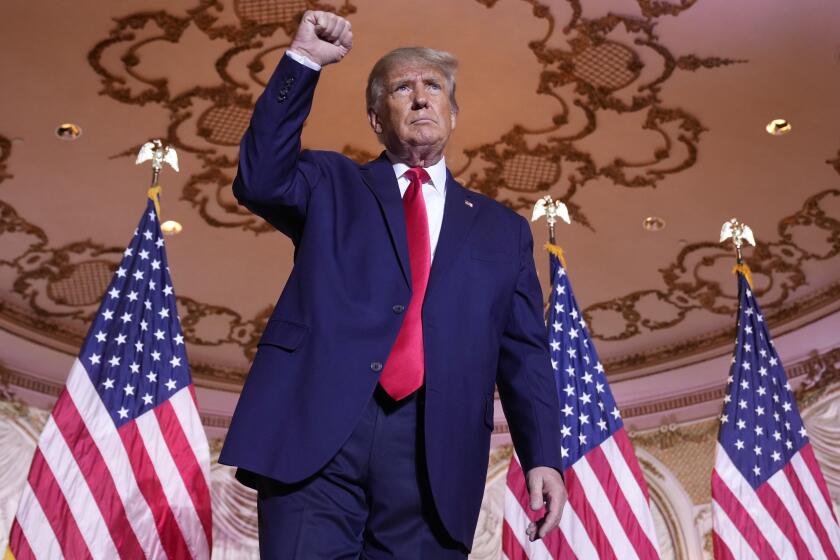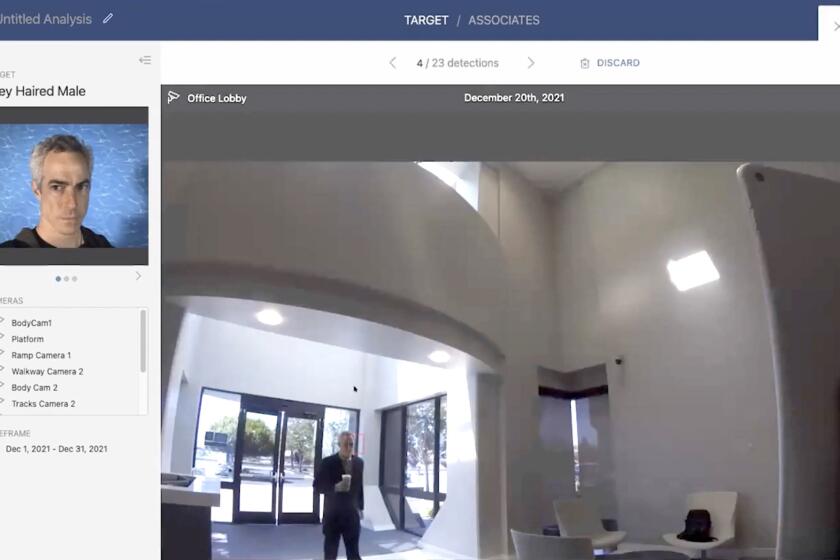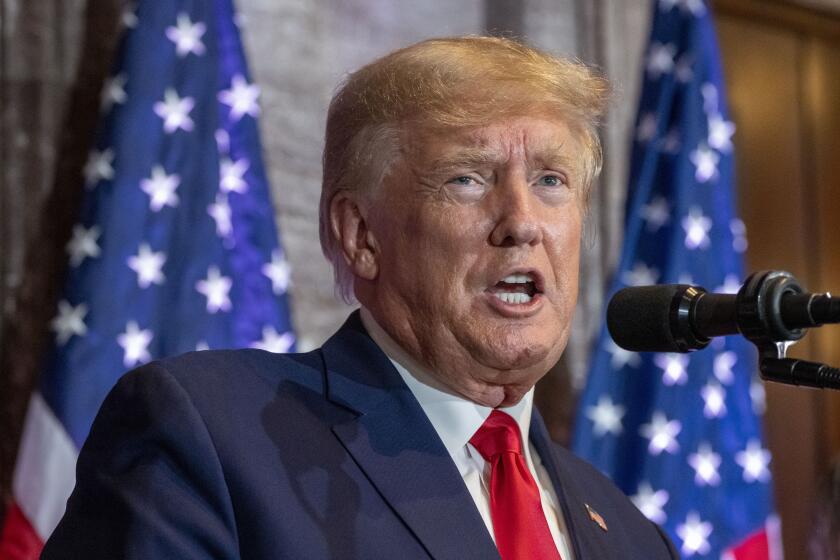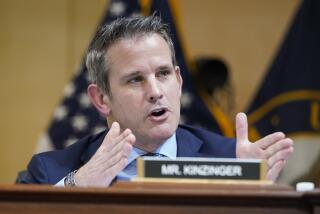CPAC shows the GOP has deep divisions heading into 2024

- Share via
NATIONAL HARBOR, Md. — When she walked onto the stage at the Conservative Political Action Conference, the room erupted in raucous applause.
It was Marjorie Taylor Greene, the congresswoman from Georgia known for her steadfast loyalty to former President Trump. For the next 10 minutes, she railed against Democratic lawmakers and transgender rights, warning that “the left” is “coming for our children.”

Greene’s warnings were echoed by other speakers, including the former president’s oldest son, Donald Trump Jr.
The focus on trans issues at the annual conference was an effort to rally conservatives around common interests. But in the run-up to the 2024 presidential election, the Republican Party is facing deep divisions. Uncertainty surrounding the outcome of the nominating process could imperil the party’s chances of taking back the White House.
If Trump wins the nomination, will Republicans and conservative independents fall in line? If he loses, will he run as a third-party candidate and take his base with him?
In the immediate aftermath of the Jan. 6, 2021, insurrection, some within the GOP initially turned away from Trump. Two years later, it’s clear that Trump still has an iron grip on much of the party. But the former president still struggles to win over independent voters.
That dynamic has put the party’s leadership in a bind. Many believe they can’t win without Trump. But with him, the general election could prove an uphill battle.

Trump has already announced his third bid for the White House. So far, only two other candidates have formally challenged Trump for the Republican nomination: former South Carolina Gov. Nikki Haley and biotech entrepreneur Vivek Ramaswamy.
Other potential candidates, including former Vice President Mike Pence and Florida Gov. Ron DeSantis, have yet to announce bids.
DeSantis, who has tangled with California Gov. Gavin Newsom, is expected to court California delegates and donors during his visit.
Republican National Committee Chairwoman Ronna McDaniel has sought to exhibit party unity to voters by requiring primary candidates to back the party’s nominee no matter the outcome. “You want to make sure you have people on the debate stage who are running for president,” McDaniel said Sunday on CNN. “We don’t want people who are running for book deals, or media contracts, or Cabinet positions.”
In a Wednesday radio interview, Haley, who served as Trump’s U.S. ambassador to the United Nations, said she would commit to the pledge.
“Any of our people will be better than [President] Biden every day of the week,” Haley said. “We need to remember what the overall good is. The overall good is to make sure we don’t have a Democrat in power.”
On Wednesday, Pence declined to say he would back a Trump nomination. Trump last month in a radio interview declined to promise to back the GOP nominee.
Representatives for Trump and Ramaswamy did not respond to a request for comment.
In announcing his candidacy Tuesday night, former President Trump has reverted to a familiar tactic at a time of weakness: hubris and volume.
Experts say the purpose of the pledge is two-pronged. The first is to encourage anti-Trump candidates to back the former president during the general election should he win the nomination in order to present a united front. The second purpose is to encourage Trump not to cast doubt on the party’s process if he loses.

If Trump loses, declares the primary process corrupt and refuses to concede, he could kneecap his party. “There is a real concern that Trump might hurt a nominee if he loses by not endorsing and telling his voters to stay home,” Republican strategist Alex Conant said. “American presidential elections are so close that even if a small fraction of Trump’s base stays home, Biden will win reelection.”
He added: “It’s a real concern that a lot of Republicans have that Trump might not ever endorse someone who beats him in a primary simply because being a gracious loser is not something we normally associate with him.”
If Trump wins the nomination, anti-Trump politicians such as former Maryland Gov. Larry Hogan and ex-Wyoming Rep. Liz Cheney, who may run for the White House, might refuse to back him, again signaling a lack of unity in the party.
Surveillance technology has long been able to identify you. Now, with help from artificial intelligence, it’s trying to figure out who your friends are.
“It would be antithetical for them to back Trump,” said Robert Stutzman, a Sacramento-based GOP strategist.
This moral stance would likely capture media attention, but it is unlikely to have a major impact on the election itself.
Recent national polling indicates that Trump is still a likely front-runner — even against DeSantis, considered the biggest threat to him winning the nomination. A February poll from Emerson College shows that Trump captures 55% of the vote in the 2024 primary. DeSantis is second with 25% and Pence third with just 8%.
Though polling indicates Trump is likely to emerge out of the primary, his race to the White House may still be uphill.

“Trump cannot grow the base,” Stutzman said. “He is unlikely to be able to build a broad coalition.”
Sarah Longwell, a Republican strategist and head of the anti-Trump Republican Accountability Project, said that with Trump in the picture, the RNC can never be in charge of the GOP.
“This attempt to force cohesion with a wing of the party that would not honor the peaceful transfer of power is an inherent conflict,” she said.
“I wish them all the luck in the world, but trying to return us to a place where everyone will abide like they are on the same page is just a fantasy.
“There is no way around Trump; you have to go through him,” she said. “There’s no pledge the RNC can make that will make change that dynamic.”
She added: “This is the price the RNC has to pay for becoming a wholly owned subsidiary of Donald Trump.”
An appeals court is urged to reject the former president’s “absolute immunity” claim and let lawsuits from injured Capitol police and Democratic lawmakers proceed.
More to Read
Get our L.A. Times Politics newsletter
The latest news, analysis and insights from our politics team.
You may occasionally receive promotional content from the Los Angeles Times.















